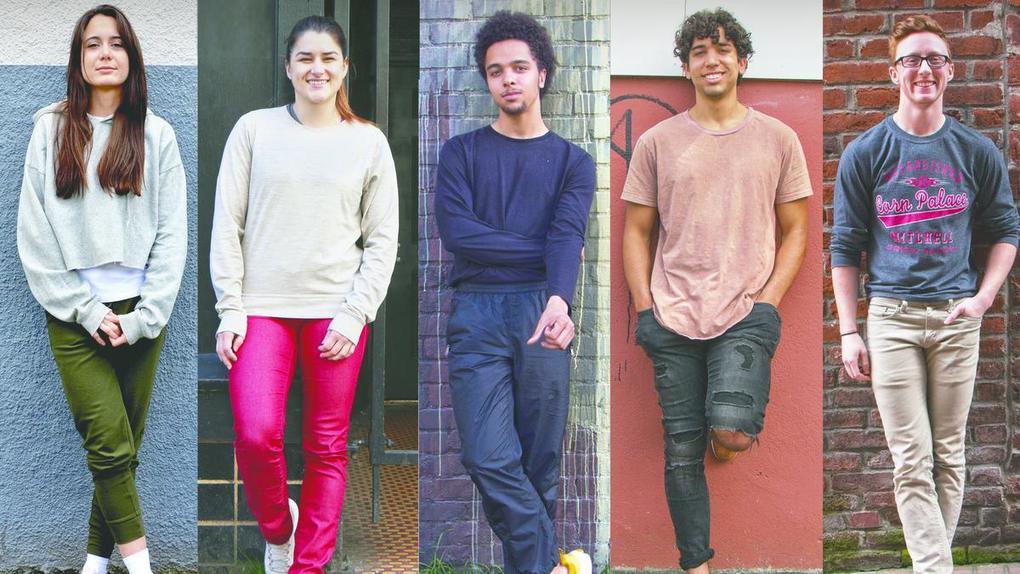
OEN Member NewsA youth movement could bring culture change to Nike, others (Portland Business Journal)
The footwear and apparel industry got a very public wake-up call in March.
Fueled by female employees fed up with what some have called a “boys’ club” environment, Nike launched an investigation into workplace misconduct and a stream of high-level executive exits followed. A memo from the company’s HR chief said Nike had “failed to gain traction” in hiring and promoting diverse talent — less than 30 percent of its top managers are women and only 16 percent are non-white.
Just last week, CEO Mark Parker called a rare all-staff meeting to apologize to those alienated by Nike’s culture. The executive exits, which totaled 11 as of this week, signaled Parker’s first steps to create change, and he’s vowed to review the company’s hiring and human resources processes in an effort to empower all employees.
But Nike is not an anomaly. Many current and former industry leaders say the problems revealed there exist throughout the industry.
“If you look at the other companies, you’ll find the exact same thing,” said D’Wayne Edwards, founder of the Pensole Footwear Design Academy and former lead designer for Nike’s Jordan Brand.
“Diversity breeds innovation — it’s simple,” he said. “That’s why our industry is stale. There’s no innovation because there’s no diversity.”
Footwear News put out its annual list of the 40 rising stars in footwear under 40 last week — not one of them is black. The list includes 13 women, two of whom are women of color. The rest are white men. The outlet’s list of the 100 most influential people in the shoe industry is similarly white and male, including just 10 people of color (three of whom are celebrities) and 17 women.
These issues can be traced at least in part to the fact that there’s historically been a very thin talent pipeline for the industry.
Footwear and apparel companies are known for looking to their existing workforces, which are predominantly male and white, to promote talent. And the pool of potential new employees has been limited by a general lack of awareness about career opportunities in footwear.
“Within the footwear and apparel industry globally, the work has not been shared outside the walls of a corporation,” Edwards said.
“The industry has done a poor job of saying, ‘hey, come join our industry, this is who we are and what we do.’ But how do you expect to have a future employee, someone who has intimate knowledge of your product, if you don’t communicate the benefits of the industry so you can hire them?”
That is the case for many of Edwards’ students, who may have grown up loving sneakers or sports but didn’t realize there could be a career for them in the industry before discovering Pensole.
“I honestly had never even understood it as an industry, but I was into the shoes, and I wasn’t sure what I wanted to do with my life,” Nathan Keith, who graduated from his second Pensole program in December.
“I had no road map, but then when you go through a Pensole course, you start to see where you could fit into the industry and you see this new work ethic being drawn out of yourself. You start to understand how to apply those things in your life.”
Edwards founded Pensole in 2010 to help illuminate a path for these young designers. Since then, he’s placed several hundred graduates in full-time positions in the industry, and taught students not only technical design skills, but also communication, team building and networking capabilities that allow them to advance more quickly to leadership positions.
Pensole also offers an avenue for brands to invest in and work with young talent. Many of the academy’s programs are sponsored by big brands like Asics and Adidas and function as extended job interviews for students interested in these companies.
Edwards and Pensole aren’t alone in feeding the pipeline of young footwear industry talent. Ellen Schmidt Devlin, another former Nike executive, founded the University of Oregon Sports Product Management masters program in 2015. She and her former Nike colleagues used to say of their work: “You can’t go to school for this.”
The effort to change that recently extended to an even younger crop of aspiring designers. In the fall, a Gresham charter school will start a two-year footwear and apparel design program for high schoolers. Pensole has also explored the possibility of creating programs for high school aged students.
These programs provide a path for a new generation of footwear industry talent, one that is more diverse than the current workforce, and one that is being shaped by larger cultural forces such as the #MeToo and #TimesUp movements. Things like sustainability, work-life balance and seeking a global perspective are also often top of mind for these young people.
“I hope to see an industry that’s really open to new ideas,” Catalina Delgado, also a Pensole alum, said. “Not only with numbers, not just saying we are diverse and inclusive, but really embracing new people and then (reflecting) the diverse stories that they bring.”
Though it will take time for them reach leadership positions, Edwards said he holds out hope that this next generation will be able to create the kind of change the industry needs.
“The people who make decisions are still 50 to 60 years old, they’re not that willing to embrace the change that these kids are demanding,” Edwards said. “This generation shares everything, for better or worse, but they really expect that companies are going to be more transparent. And what’s great about this new generation — if the big companies don’t give the kids what they want, they’re going to go out and make it themselves.”
Source: www.bizjournals.com

